Editor’s Comments
Hardly anyone outside Emporia, Kansas today remembers William Allen White, but a hundred years ago, this editor of the town’s leading paper, the Emporia Gazette, was a figure of national renown, a major influence within the more liberal wing of the Republican Party, a man consulted by governors, senators, even Presidents. His columns were reprinted in hundreds of papers. He was considered one of American’s wise men. “The Sage of Emporia” some called him. Teddy Roosevelt usually stopped off at White’s home when crossing the country. He wrote Coolidge’s biography, advised Hoover, helped other Republicans do damage control during the Harding years. Writing from a small town at the heart of America, William Allen White was a symbol of much that was right and just.
 What People Said was written by his son, William L. White–a Harvard graduate, a highly-respected foreign correspondent and, eventually, successor to his father as editor of the the Gazette. It was his first and only novel.
What People Said was written by his son, William L. White–a Harvard graduate, a highly-respected foreign correspondent and, eventually, successor to his father as editor of the the Gazette. It was his first and only novel.
“This book is fiction” states the epigraph. The assurance was necessary because, at the time, it told a story that was still familiar to most of its readers: the Kansas Bond Scandal. In 1933, a Kansas business man, Ronald Finney, was arrested, accused of numerous counts of fraud. That alone would hardly have made it national news, however, had it not been for the circumstances of his frauds. Finney’s schemes involved forging public bonds–for school construction, for sewer work, for country roads and bridges–and using them as security for substantial loans. The paper trail in this case led to some interesting places, including the office of the Kansas State Treasurer, and, just possibly, the governor himself–Alf Landon, that is, FDR’s Republican opponent in the 1936 Presidential election.
It led to the impeachment of the state’s attorney general and auditor and conviction of the Treasurer. It also led to the doorstep of the Emporia bank owned by Warren W. Finney–Ronald’s father … and a close friend and neighbor of William Allen White, the Sage of Emporia. Ronald Finney was convicted and sentenced to a whopping term of 30 to 600 years in the Kansas State Penitentiary. Soon after, bank examiners shut down the bank. Implications about improper loans, check kiting, and, yes, forgery. Warren Finney was tried and convicted, but as the county sheriff waited on the front porch to take him to prison, he went out the back door, drove off into the countryside, and shot himself.
There was never the slightest suggestion or indication that William Allen White was involved in any of this. But the mere fact that for decades he had lived with, supped with, sat in church alongside, and vacationed with Warren Finney without ever inquiring about Finney’s affairs or the recurring rumors of questionable activities led many people to wonder just how sagacious and upright was the Sage of Emporia. And to wonder what that then said about some basic American home town beliefs.
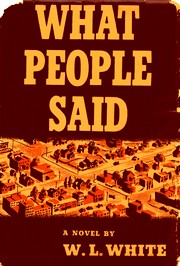 In What People Said, William L. White recounts the intertwined histories of two families–the Carroughs (the Whites) and the Norssexes (the Finneys)–and plays out the trail that led from the Norssexes’ arrival in Athena, Oklarada (Emporia, Kansas) to the frauds of father and son: the downfall of one family and the loss of faith in the other. Charles Aldington Carrough (William Allen White), editor of the Athena Sun is a man of national repute, a leader of the Progressive. Isaac Norssex (Warren Finney) buys the Athena Power and Light Company, moves to town, then sells the company and settles into a life of banking and various business ventures.
In What People Said, William L. White recounts the intertwined histories of two families–the Carroughs (the Whites) and the Norssexes (the Finneys)–and plays out the trail that led from the Norssexes’ arrival in Athena, Oklarada (Emporia, Kansas) to the frauds of father and son: the downfall of one family and the loss of faith in the other. Charles Aldington Carrough (William Allen White), editor of the Athena Sun is a man of national repute, a leader of the Progressive. Isaac Norssex (Warren Finney) buys the Athena Power and Light Company, moves to town, then sells the company and settles into a life of banking and various business ventures.
The families become friends. They attend the same church, visit each other when sick, spend summers together at the lake. Lee Norssex (Ronald Finney) and Junior Carrough (William L. White) grow up, fishing and hunting, going to parties, playing games. Junior goes to Oxford; Lee to Oklarada State, but they stay in touch, returning to Athena and starting careers and families as their fathers sit together in church, pillars of the town establishment.
Except that Isaac Norssex is never quite as well accepted by the people of Athena as he is by Charles Aldington Carrough. A murmur of suspicion and distrust runs throughout their talk:
The substantial people in Athena accepted the Norssexes slowly. They felt it was a little presumptuous for them to buy on Federal Street as soon as they came to town. Just because you lived on Federal Street didn’t mean you immediately became intimate with Athena’s first families, whose fathers had organized the first stores in the sixties, and had saved their money and invested it in big pastures and ranches in the seventies and eighties.
The older men had a feeling that you Isaac Norssex was tricky in business. They agreed he was smart. But what did he have back of him? He had started as a trader in the equities of small light companies–buying, developing, consolidating, selling only to buy again.
The power business was probably all right. But it was new. Probably it was going to be permanent–maybe it was going to expand. Yet in the early twentieth century it was not so respectable as running a bank or a general store.
The people of Athena represent the third point in What People Said‘s dramatic triangle. Throughout the book, through every twist and turn of the narrative, through the good times of the Twenties and the bad times of the Depression, their commentary reflects upon events and characters. WPS is an apt title, for people serve as the chorus in White’s tragedy, and what they say throughout the book constitutes perhaps the most significant aspect that makes it worth rediscovery.
White’s chorus does not speak in unison. We hear different sides–from the store owners and day-labourers, from the farmers and the city folk, from the Progressives and the Stand-patters:
Oklarada’s Progressives favored child-labor legislation and safety guards over whirring gears in factories and compulsory accident insurance and couches in each women’s rest room so girl workers could lie down, and paper drinking cups. In these objectives they were opposed by the Standpatters, who found the world quite satisfactory as it was, who believed unshakably that man’s function on earth was to acquire as much as possible of its rich surface for himself and his children, and that these ends could best be served by keeping soft-headed cranks out of the Oklarada State House.
But like the chorus in a Greek tragedy, the people of Athena also pass moral judgments on the characters in the drama and their actions. Suspicions of Isaac Norssex are fed by rumors, and rumors become more and more explicit about the nature of his misdeeds:
After a few years an occasional disquieting rumor began to drift into Athena from out of town. It seemed that Mr. Norssex had a reputation for kiting checks with other bankers. It was never anything definite–just Sos-and-so said he heard it from Such-and-such, that Norssex was running a lot of checks through the Clearing House to Old Man Perky’s bank in Toluca, that Perky was a notorious old kiter, and they guessed Norssex and Perky between them must have a thirty- or forty-thousand-dollar kite floating most of the time.
When Lee graduates from Oklarada State, his father sets him up with a small bank to run. Lee soon finds it something of a dead end, less a stepping stone than a millstone around his neck. But he also learns his father’s purpose in putting him in charge–to help out with the floating of an occasional big check or two. Purely a matter of convenience, just a matter of avoiding some unpleasantness due to mistiming of intake and outflow. Unfortunately, a bank examiner eventually detects a hint or two of what’s going on in Lee’s bank and confronts Isaac. Purely a matter of inexperience, Norssex assures him. Youth and poor judgment. Lee quietly leaves the bank and goes into the insurance business. There are rumors, of course, more murmurs of suspicion. But nothing’s proved. No charges are filed. Perhaps the rumors are just spiteful.
Soon, Lee’s fortunes begin to turn. From insurance he moves into bonds, and bonds expand into speculation into stocks and commodities. No one quite understands how he manages to make money. He tells people he’s a bond broker, but just what that involves isn’t quite clear to anyone. He seems to get access to some of the top men in the state–the treasurer, legislators, maybe even the governor. But still ….
And the intermittent rumors about his father keep popping up. Charles Aldington Carrough remains far above the hub-bub and whispering, an ivory tower of rectitude. But his son Junior struggles to remain objective. He resists attempts to publish stories about questions from auditors and examiners in the Sun, going to extraordinary lengths to give the Finneys the benefit of the doubt. Even up to the point that a warrant for Lee’s arrest is issued, Junior finds it difficult to see him as anything but a life-long friend:
A guy you had always known–who you knew liked books about travel and adventures and hunting, and liked his hamburgers not rare but medium rare, liked pickled beets with cloves in them, and did not like tapioca pudding very much or dogs at all.
Yet now he was something else. He was headlines in the morning paper, he was a public newsprint figure who had a “whereabouts” which “had not been ascertained” by the morning papers. He was the “daring speculator,” he was a lot of other things besides being a guy who watched to see that they took the hamburger off when it was just medium rare.
The people’s chorus, however, is ready to pass judgment:
All that week everybody in Athena was awfully sorry for Mr. and Mrs. Norssex. People who had never liked them were sorriest of all, could imagine most vividly how awful it must be to have your boy accused of a penitentiary offense, how broken the Norssexes must be under the blow!
People who did not like Lee could now say that they had always thought something like this would happen and that they were sure sorry for Henny and the kids.
Those who liked neither the Norssexes nor the Carroughs were of course sorry for Mr. and Mrs. Norssex, but to Junior they would say, looking cynically off into space: “Oh, he’ll get out of it! You’ll see! Lee Norssex’ll never go to the penitentiary, his friends will get him off!”
In the end, Lee Norssex is convicted and sentenced, and as in the real-life Kansas Bond Scandal, the investigators carry on to indict and try his father for similar frauds. And as Warren Finney did, Isaac Norssex quietly slips out the back door of his house for a last drive, out to the family’s vacation house by the lake. Despite the fact that Isaac seems a pretty wooden figure through most of the novel, White pulls out some of the book’s best descriptive prose for his last moments:
He lifted the oak-framed kitchen mirror from the nail where it hung by a picture wire on its back. He walked out onto the screened porch, his footsteps again echoing on the wooden floor as he went evenly about what was to be done–slipping the shiny cartridges into the black holes of the chamber, which clicked as it revolved.
The springs of the long porch swing creaked familiarly as he sat down on its gaily striped cushion. The surface of the kitchen mirror was wavy, but by holding at arm’s length he could see that the slender black barrel pointed at the proper angle into the neatly trimmed iron-gray hair. When he was sure it did, he met the gaze of the calm and determined eyes that looked at him from the wavy mirror.
Afterward it was very still again except for a breeze which now and then rustled the awning outside the screened-in porch, and the car engine, which ticked away the last of its heat on the hilltop, at the end of the long, straight road.
What People Said betrays some of the weaknesses of many other first novels–a narrative thread or two that wanders off, never again to be seen; characters that exist purely to fill in a gap in the story; and a protagonist (Junior) who manages to see and hear more than anyone else but himself lacks any solid characteristc. It’s a long book, over 600 pages, that could easily lose a hundred without much disadvantage.
But it’s also a remarkable novel with a very strong narrative momentum. I devoured the book in under six days, usually gulping down a hundred or more pages at a sitting. You know from the very beginning that something is going to go very wrong with the Norssexes, but White manages to sustain the reader’s morbid fascination in seeing it all unfold, step by step.
It’s also substantial portrait–in large scale and small–of small town, middle America in the first third of the 20th century. Hardly anyone in town owns a car at the start of the book. Roads peter out a mile or so out of town. Everyone knows in fine grain the stratification of the Protestant churches–Presbyterian on top, Methodists in the middle, Baptists on the other side of the tracks, Lutherans for the Germans and Swedes. Athena sends some of its boys off to France in 1917. After the war, some of them revive the Ku Klux Klan to “protect the working man.” Publicly, the town supports Prohibition. Privately, you know who to call if you want a bottle of “gin” brought round the kitchen door once a month.
As a town built around agriculture, Athena feels the effects of the Depression early and deeply. Farmers default on mortgages. Hoovervilles rise up beside the city dumps. The proud businessmen who were optimistic boosters during the Harding years grow “hopeless, staring out of empty stores with a hopeless little stubble on their chins, hopless bags in the knees of their once natty gray worsted suits.”
And, throughout the book, there is that chorus–wonderfully catty, hypocritical, Puritanical, earthy, cynical, altruistic, bitter, hopeful, but always ready with something to say:
That winter, people were afraid to grumble much about Lee Norssex’s success. You could see plainly he was making a lot of money. And nobody else was. He was into all kinds of things. Probably some of them would not turn out so well.
But if you said this, people would say you were jealous, picking on some little detail, just because your business was bad. Because you hadn’t been smart enough to think up things which would make money, as Lee Norssex had.
People would be right, too, because you were jealous. But you tried not to be. Every time you heard that Lee had made some money on a deal, or heard that he had bought something which you would like to own but probably never could, you would smile and say, “Well, by George, that’s fine. I’m awfully glad to hear that!” You would try to be glad, too. Even though your business was going to pieces before your eyes in spite of everything you could do, you did not want to become a bitter little man.
It would be unfair to label What People Said a “regional” novel. I think it deserves a place on the shelf alongside and perhaps ahead of Sinclair Lewis’ Babbitt and Main Street. It’s a rich tapestry of American life well worth rediscovery.
Find a copy
What People Said, by William Lindsay White
New York: Viking, 1938
 G. Wilson Knight subtitled this 1936 book “An Autobiographical Design,” and had he stuck to the autobiography and left the design out, I might have been less resentful about the several hours I devoted to assaulting its slopes. Perhaps I lack the mountaineering skills to attempt such a tower of intellect. But Atlantic Crossing struck me as one of the most grandiose failures I’ve tried to read in a long time.
G. Wilson Knight subtitled this 1936 book “An Autobiographical Design,” and had he stuck to the autobiography and left the design out, I might have been less resentful about the several hours I devoted to assaulting its slopes. Perhaps I lack the mountaineering skills to attempt such a tower of intellect. But Atlantic Crossing struck me as one of the most grandiose failures I’ve tried to read in a long time.
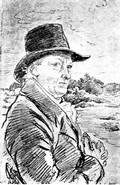 “In 1757 William Blake was born in London; in 1827 he died there; where he has been since 1827 I do not know.” This wonderful line opens Harold Bruce’s
“In 1757 William Blake was born in London; in 1827 he died there; where he has been since 1827 I do not know.” This wonderful line opens Harold Bruce’s 
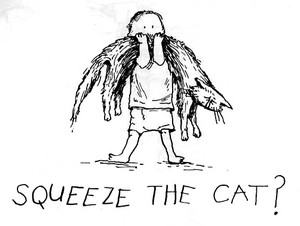

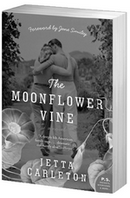 Easily the most popular neglected book on this site, Jetta Carleton’s
Easily the most popular neglected book on this site, Jetta Carleton’s 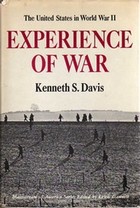 A very long time ago, I checked a book titled
A very long time ago, I checked a book titled 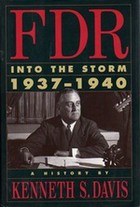 Despite the fact that Random House gave the fourth volume,
Despite the fact that Random House gave the fourth volume, 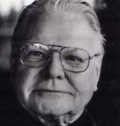 So is that the fate of Kenneth S. Davis? To have steadily and diligently written himself into oblivion? At the moment, all but his history of
So is that the fate of Kenneth S. Davis? To have steadily and diligently written himself into oblivion? At the moment, all but his history of  When I read the above opening passage of
When I read the above opening passage of 
 In
In 
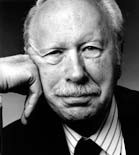 Praise such as this makes me want to hang my head in shame for not having read it yet, even after skipping past used copies in bookstore stacks perhaps a hundred times over the year (I think it was a Literary Guild selection, so there are plenty of cheap used copies out there in the U.S.).
Praise such as this makes me want to hang my head in shame for not having read it yet, even after skipping past used copies in bookstore stacks perhaps a hundred times over the year (I think it was a Literary Guild selection, so there are plenty of cheap used copies out there in the U.S.).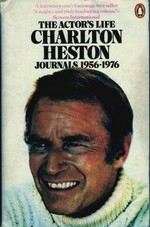 This book has stuck in my head ever since I heard Wallace Shawn (the character, not the actor) say, in the 1981 film
This book has stuck in my head ever since I heard Wallace Shawn (the character, not the actor) say, in the 1981 film